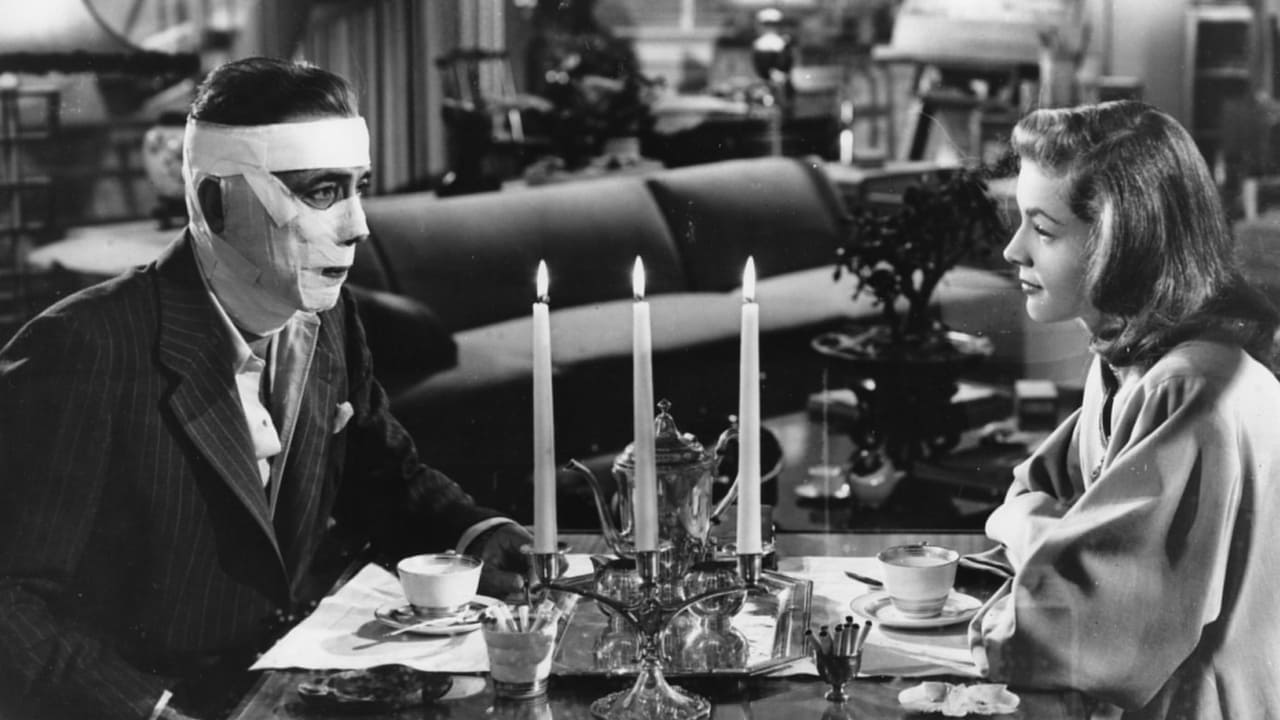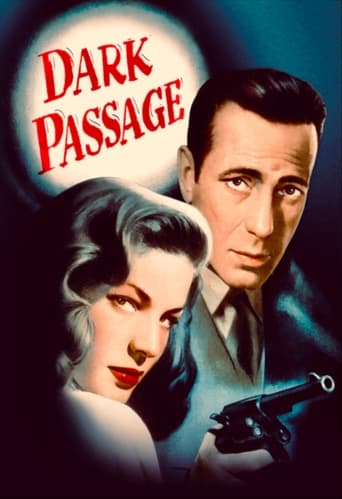GamerTab
That was an excellent one.
Voxitype
Good films always raise compelling questions, whether the format is fiction or documentary fact.
Yash Wade
Close shines in drama with strong language, adult themes.
Wyatt
There's no way I can possibly love it entirely but I just think its ridiculously bad, but enjoyable at the same time.
clanciai
This is at the same time both one of the most romantic noirs and one of the darkest. Humphrey's situation is utterly hopeless, as he condemned for life escapes from San Quentin with no chance at all to get away with it, unless he changes his face, but even with that operation carried through successfully, he faces new overwhelming difficulties by murders and suicides and not a chance to prove his innocence. This is one of the main themes of most noirs: the helplessness of innocence to prove itself true, while all society seems united in attacking and prosecuting you for it, and in most noirs this struggle against impossible odds is not very successful. Here Humphrey finds Lauren Bacall who appears from nowhere and helps him on the way, while Agnes Moorehead does her best to ruin even that small chance of a break - she has never been more furious.The cinematography is fascinating, this is a forerunner of both Hitchcock's "Vertigo" and Frankenheimer's "Seconds", and the suspense is sustained all the way to the very end. It's certainly one of the best noirs of the forties, Franz Waxman's music helps in making it an accomplished cinematic masterpiece, and there is nothing wrong with the story. Only people lacking the sense of true romanticism could have any objection against the script.
Richard Dominguez
The Great Duo Of Lauren Bacall And Humphrey Bogart Together Again I This Great Suspense Filled Movie ... The Movie Starts With Humphrey Narrating The Movie As Well As Us Seeing Everything From His POV, A Brilliant Idea So That We Don't Know What Vincent Perry (Escaped Convict/Bogart) Looks Like ... Bogart Is Brilliant (When Isn't He) In The Role Of A Man Desperate To Prove His Innocence ... Bacall As Always Beautiful, Tough And Dependable Is A Marvel (When Isn't She) In Her Role As The Trusting "In Love" Woman ... This Like "Any" Bogart Movie Is Excellent In It's Execution And Detail .. A Must Watch For Any Fan Of The Film Noir Genre Or Bogart Movie
Ross622
Delmer Daves' "Dark Passage" is a very good movie that is very similar to "The Fugitive" (1993) in terms of the story-line but has some different aspects as well, this is one of the best film noir type films that I have seen along with "The Big Heat" (1953), "The Maltese Falcon" (1941), "White Heat" (1949), "The Big Sleep" (1946) and as well as many others. The movie stars Humphrey Bogart as Vincent Parry a man who is convicted for murdering his wife and ends up escaping from prison and is on the run from police in order to prove his innocence. Parry then meets a woman named Irene Jansen (Lauren Bacall) who tries to help him prove his innocence. Then during the movie Parry seeks a doctor's appointment to seek plastic surgery in order to change his appearance with Dr. Walter Coley (Houseley Stevenson). The first forty minutes of the movie are the most interesting 40 minutes I have ever seen in a film since those shots are from Parry's perspective. Then towards the end of the movie we see Parry and Jansen and her neighbor Madge (Agnes Moorehead) scream as if he actually killed somebody when he actually didn't. The movie was the third of four movies that Humphrey Bogart and Lauren Bacall would do together (the fourth was John Huston's "Key Largo" (1948)). The chemistry between Bogart and Bacall was so good in this movie just like it was in their previous film "The Big Sleep" from the previous year and was directed by Howard Hawks. Delmer Daves' direction and his screenplay is executed for the film like an Alfred Hitchcock movie but much less suspenseful. But it was still was a very good movie to watch and is one of 1947's best films, and it kept me on the edge of my seat as well.
jrd_73
I watched Dark Passage about fifteen years ago and had not remembered much about it, but I recently became interested in the fiction of David Goodis. After reading the novel Dark Passage, I decided to give the film adaptation another chance. I was surprised by how faithful the film was to the Goodis source novel.Either the Production Code or the studio insisted on a few changes. Bob and Madge are turned, rather illogically, into a bickering, engaged couple instead of an estranged, married one. I suppose someone did not like the idea of Lauren Bacall's character dating (albeit, casually) a married man. In addition, Vincent's hallucinations during his surgery have been altered, so they no longer provide a clue to the killer's identity (they should have been dropped altogether). Finally, the film adds a final passage to the Goodis story to provide a slightly more optimistic ending (similar to what Shawshank Redemption added to "Rita Hayworth and Shawshank Redemption").Having acknowledged all of that, I am surprised by how much of Goodis's book remains. Goodis is a novelist of characters. Perhaps, then, I should not be surprised that the best scenes deal with supporting characters. The great scene between Vincent and the cabbie is almost verbatim from the book. Some might think that the scene stops the story, but it is a small, perfect sequence in both book and film (great playing between Bogart and Tom D'Andrea in that scene). The portrayal of Dr. Coley by Houseley Stevenson is dead on. The plastic surgeon may be world weary, but he has his own code of ethics. Finally, there is that great scene where Vincent with his new face calls on Madge Rapf (a perfect Agnes Moorehead). It's the one scene in the film that needed to be in color to highlight the orange motif, even if the dialogue is pure noir.This last example also highlights the film's one, big weakness. I know this is a minority opinion, but, I don't particularly like Lauren Bacall. Despite the fact that she and Bogart were a couple, I believe that Bogart had more screen chemistry with Ingrid Bergman (Casablanca), Mary Astor (The Maltese Falcon), Gloria Grahame (In a Lonely Place), and Ida Lupino (High Sierra). Meanwhile, Bacall has always struck me as a rather cold presence. I simply do not know what this Vincent would see in this Irene. By contrast, that scene between Vincent and Madge, where he is pumping her for information as she is contemplating a pumping of a different kind, is smoldering with sexual tension. Of course, in Vincent's case the tension is an act, but there is still more heat with Madge (act or not) than in any of the scenes with Irene.Lauren Bacall aside, Dark Passage is a good film. The film uses the San Francisco locations nicely. The film was daring in having Vincent's face being impossible to see for the first half (before he becomes Bogart). Lastly, there are those great characters brought to life by wonderful character actors. Of the three David Goodis's novels I have read, Dark Passage is probably my least favorite, even though it is a good read with great parts. The film adaptation of Dark Passage is as good as the novel. How often can one say that?

